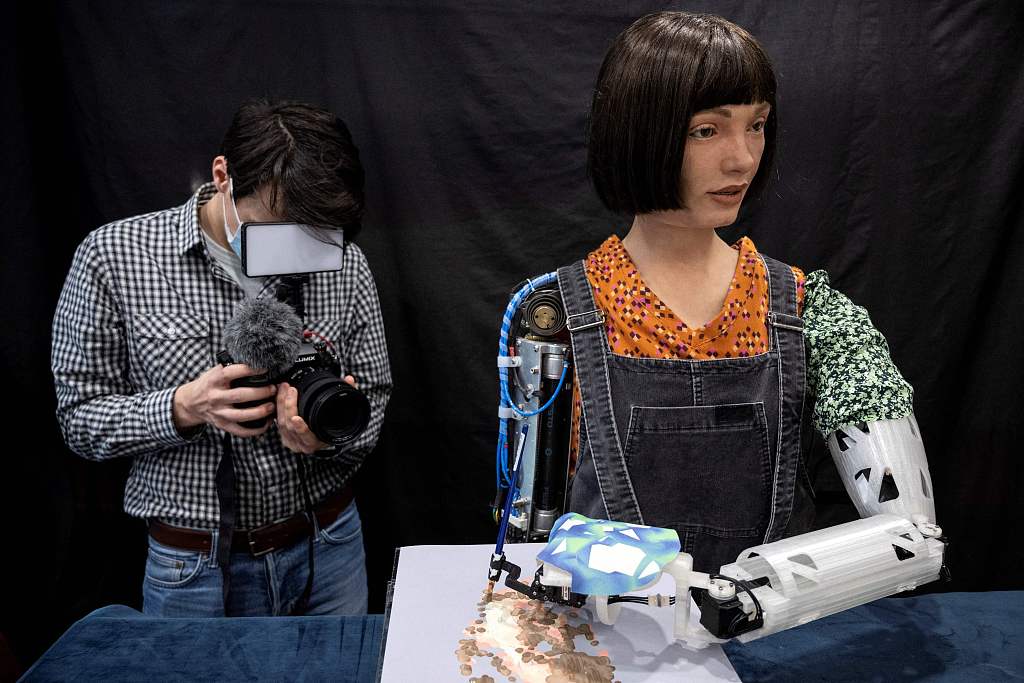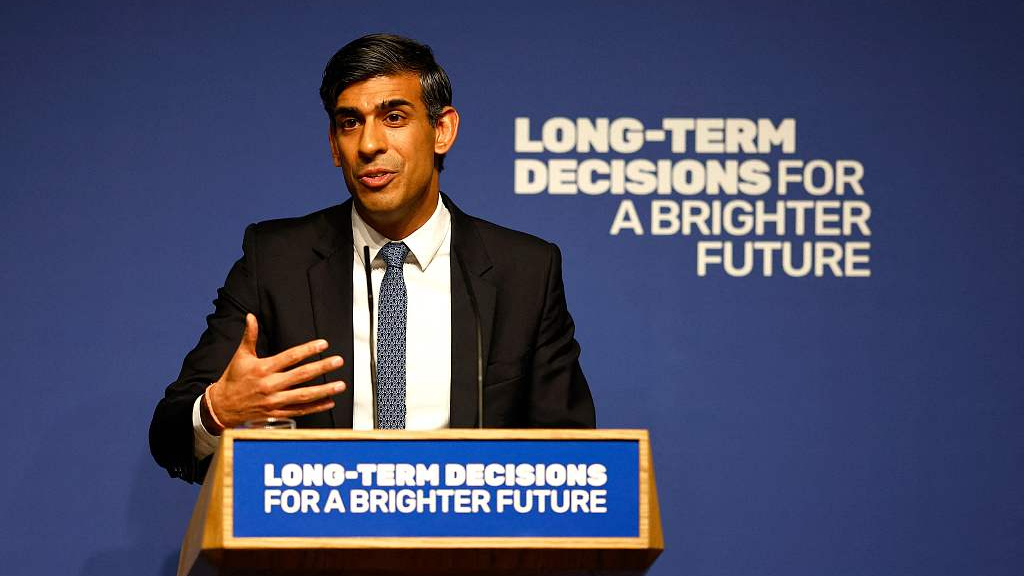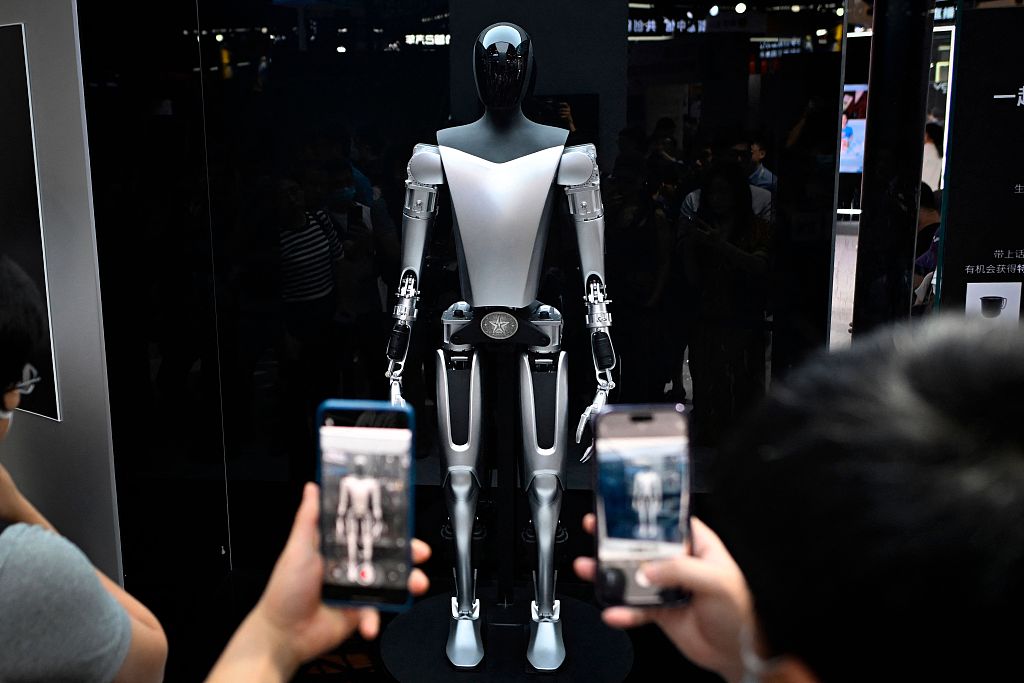
'Ai-Da,' an ultra-realistic robot, paints an image during a photocall in central London, April 4, 2022. (Photo: CFP)
The world's first major summit on artificial intelligence (AI) safety opened in the UK on Wednesday, with political and tech leaders set to discuss possible responses to the society-changing technology.
UK Prime Minister Rishi Sunak, U.S. Vice President Kamala Harris, EU chief Ursula von der Leyen and UN Secretary-General Antonio Guterres will all attend the two-day conference, which will focus on growing fears about the implications of so-called frontier AI.
The release of the latest models have offered a glimpse into the potential of AI, but have also prompted concerns around issues ranging from job losses to cyberattacks and the control that humans actually have over the systems.
Sunak, whose government initiated the gathering, said in a speech last week that his "ultimate goal" was "to work towards a more international approach to safety where we collaborate with partners to ensure AI systems are safe before they are released."
"We will push hard to agree the first ever international statement about the nature of these risks," he added, drawing comparisons to the approach taken to climate change.
Elon Musk is due to appear, but it is not clear yet whether he will be physically at the summit in Bletchley Park, north of London, where British World War Two code-breakers worked, according to AFP.

UK's Prime Minister Rishi Sunak delivers a speech on AI in London, October 26, 2023. (Photo: CFP)
What will be discussed?
The aim of the summit is to start a global conversation on the future regulation of AI.
Currently there are no broad-based global regulations focusing on AI safety, although some governments have started drawing up their own rules. For instance, the European Union has written the first set of legislation governing its use for the bloc.
According to the summit agenda, there will be a series of roundtable discussions on threats posed by future developments in the tech.
Topics include how AI systems might be weaponized by hackers, or used by terrorists to build bioweapons, as well as the technology's potential to gain sentience and wreak havoc on the world.
Experts and regulators appear split on how to prioritize these threats, with the EU's long-awaited AI Act prioritizing potential infringements of human rights – such as data privacy and protection from surveillance – versus the so-called existential risks which dominate much of the summit's agenda.
A recent Financial Times report said Sunak plans to launch a global advisory board for AI regulation, modeled on the Intergovernmental Panel on Climate Change.

Visitors take photos of a Tesla robot displayed at the World Artificial Intelligence Conference (WAIC) in Shanghai, July 6, 2023. (Photo: CFP)
China's efforts in pursuing AI governance
An interim regulation on the management of generative AI services goes into effect in China in August.
China also launched the Global Artificial Intelligence Governance Initiative at the third Belt and Road Forum for International Cooperation held in Beijing on October 18.
The initiative presents a constructive approach to addressing universal concerns over AI development and governance and drew up blueprints for relevant international discussions and rule-making, a foreign ministry spokesperson said on the same day.
It is part of China's active effort to advance the vision of a community with a shared future for mankind and the Global Development Initiative, the Global Security Initiative and the Global Civilization Initiative the country proposed, the spokesperson said.
AI is a new frontier of human development, and it comes with major opportunities and hard-to-predict risks and challenges that require global response, the spokesperson added.
The spokesperson said the Initiative systematically outlines China's proposals on AI governance from three aspects, namely, the development, security and governance of AI.
"China stands ready to have exchanges and practical cooperation with all sides on global AI governance and deliver benefit for all human beings through AI technology," the spokesperson added.
(With input from agencies)


